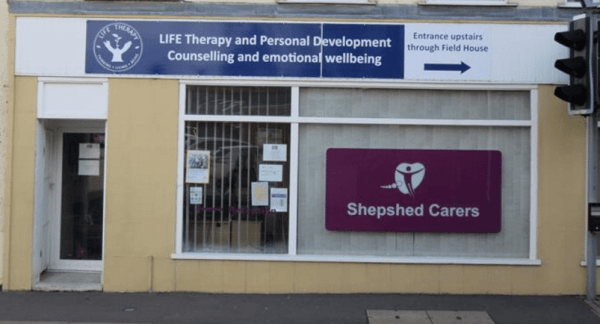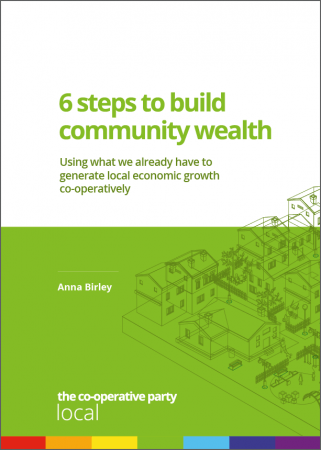In the face of austerity and funding cuts, communities are needing to be more self-reliant – and, from social care to other traditional public services, co-ops are helping to fill the gap.
This raises a number of questions. What role do co-ops play? Do they help communities be more self-reliant? Concern for the community has always been on the co-op agenda: it is the seventh co-op principle.
To discuss these issues, this year’s Co-op News Big Debate brought together three panelists at Congress: Jane Avery (from CASE – which provides support for social enterprise in the East Midlands); Karen Wilkie (Co-operative Party); and Dr Kathrin Luddecke (freelance advisor, Plunkett Foundation). The debate was chaired by Anthony Murray, executive editor of Co-operative News.
The panelists all agreed that the values needed to provide good care and support for the community are in the co-op movement. “Co-ops are the community, aren’t they,” said Ms Wilkie. “Co-ops caring for the community is not separate from what they are set up to do.”
Ms Avery added: “Caring for the community is embedded in co-ops. It’s indivisible – the co-op is the community and the community is the co-op.”
Related: Dame Pauline Green on the National Co-operative Development Strategy
And Dr Luddecke agreed: “Concern for the community goes back to the other co-op principles – like one member one vote, and education.”
But how can those virtues be translated into action, in a country still in the face of austerity? Ms Avery said her organisation provided one answer: through giving care workers the business skills they need to work as a co-op, with profits reinvested in their businesses.
She explained how CASE is currently doing this for three women working in the home care sector, who asked for help after being told they would be made redundant.
“We put them on to a management training course as a first step to building confidence,” she said. “One problem in this sector is that for a private business to make a profit they have to push wages down. But care co-ops – with wages dictated by what councils and other providers will pay – only have a small margin to improve pay but can give member workers a say in business and a dividend.”
CASE and Shepshed

She gave example of Shepshed Carers, a home-care co-op set up in 1994 by a group of care workers in the Loughborough area. It now has 70 employees delivering 850 hours of home care each week, mostly through local authority contracts.
The co-op model solves problems that have arisen since care services were privatised, said Ms Avery.
“Now the local authority is just a broker of care, not a provider, provision is poor – it’s a market failure.”
With a high staff turnover in private companies, clients lose the valued continuity of care, from a care worker they know and trust, she added. “Co-ops are an answer. They care about their staff.
“Shepshed has grown its business through that loyalty and offers continuity of care, which makes for a better service.”
Learning from abroad at Plunkett
Dr Kathrin Luddecke, who is leading the Being Well Project programme at the Plunkett Foundation, said the values of co-operation could also give communities the tools to help themselves. She said Plunkett was looking to help communities thinking of creating “multi-purpose rooms” or offering new services such as nutrition, exercise, mental health, tackling isolation and helping communities be better connected.
“We’re looking internationally at what people are doing, to help communities look after themselves and each other,” she said. “Our aim is that, by the end of the year, we will have worked with ten communities or social entrepreneurs to have ten business plans in this area. We have to see whether people rise to the challenge.”
Building community wealth through progressive politics

Karen Wilkie, deputy general secretary of the Co-operative Party, discussed the organisation’s new programme, Six Steps to Build Community Wealth – “a practical guide for councillors, local authorities, public-sector institutions and those working in regional economic development to implement community wealth building in every region of the UK”.
The strategy is based around local investment – such as community banks or credit unions; anchor institutions, such as hospitals, universities, religious institutions and sports clubs; and local leadership. It will see local and devolved government bring together stakeholders to drive the strategy forward.
“Local government is asking: ‘Could a co-op provide a service more cheaply?’ But we should also be thinking about how co-ops contribute to more sustainable services,” she said.
The strategy is designed to meet “the need for co-operative political leadership. [We need to] find leaders, who can then find anchor institutions in communities like hospitals and businesses. They will procure services. We’re asking councils to create networks of strategic leaders and participants in these networks, with a shared vision.”
Alongside principles such as sustainability and the Living Wage, the strategy is aimed at keeping money circulating in local economies, which have struggled under austerity measures.
Ms Wilkie gave the example of anchor institutions in Leeds, which had a budget of £11bn – but much of this was leaking out of the local economy.
The answer is to “build partnerships before procurement begins to support these anchors and map local businesses – co-ops and social businesses, and maybe create new co-ops, get feedback from them, increase the local spend.
“And you can find suitable contracts for worker co-ops, and create a co-op investment fund to help startups and expansion.”
Different models of care and engagement
During the debate, Co-operative News’s Anca Voinea presented case studies on three of the social issues that co-ops help solve for communities, and the debate was opened up to the floor.
Laurie Gregory, chair of the Foster Care Co-op, also voiced concern over money being extracted by the system, with many privatised care services now held by venture capital companies.
“We are appalled by this,” he said, adding that co-ops offered a better alternative – if only policy makers were aware of them.
“We want to get some serious traction behind that,” he added. “We want a local authorities on board, but we haven’t yet. Local authorities are very cautious at the moment – they don’t understand what a co-op does.”
Ideally, he said, care would be delivered by multi-stakeholder co-ops that include the service user. “It’s not that difficult if you know what you’re doing.”
Jane Avery agreed it was frustrating not being able to engage with local authorities. “Co-ops should be an automatic go-to,” she said, “to look for a credible and ethical business model to do business with. I’d say hand on heart that Winterbourne [a private hospital abuse scandal] would not have happened if it had been a co-op.”
From the floor Mervyn Eastman, chair of the Co-operative Care Forum, sounded a cautionary note.
“Because the narrative around social care is so dire, with such a high percentage of failing or poor quality care, we try to look for a solution,” he said. “I support the notion that co-op solutions are there, but how uniquely would the co-op ethos actually safeguard provision from the corruption of care?
“If we start to believe our rhetoric without evidence that co-ops will protect against this and never have incidences of abuse … well, we have to worry about that sort of promotion.”
He added: “The key issue is what is the relationship between those receiving and those providing, those owning and those commissioning. Unless those in communities have the power, we’re not going to see successful care co-operatives.”
Ms Avery said such issues lead back to the co-operative values and principles. “That doesn’t mean some members don’t break laws and policies,” she added, “Some do, but there is an intrinsic belief that a co-op model is a better way of doing business.” But she agreed that conversations had to change “from rhetoric to pure fact – we have to believe in ourselves to do that”.
Ms Wilkie added that while the co-op model is never a guarantee, motives guide actions. “It’s a good start if your motive is to deliver better care,” she said.

“The stakeholder model gives everyone a voice which is heard and can’t be ignored. Winterbourne, Grenfell – people were saying there was something wrong here but they were ignored, because they could be ignored.
“If you have a model where those voices are heard and can’t be ignored, you start to build in safeguards.”
A magic wand for care
Concluding the debate, Anthony Murray asked each panelist: “If you could wave your magic wand and deal with one issue in care, what would that be?”
Ms Avery would address division, which she argued was the “biggest thing facing our society”.
“Working together, accepting differences of opinion, having common goals and way of working towards that – co-ops do aim to do that,” she said. “They encompass a broad church of opinion and backgrounds, they are not a monoculture.”
Dr Luddecke said she wanted to deal with “lack of services and opportunity and social connectedness. It’s something to address collectively, through self help, so people develop services for themselves and feel connected again.”
And Ms Wilkie would address health and nutrition. “If I had a magic wand to wave everyone, regardless of their location, would have access to healthy locally sourced food. That’s what the Rochdale Pioneers set out to do – but it feels now as if that’s slipping way.”

